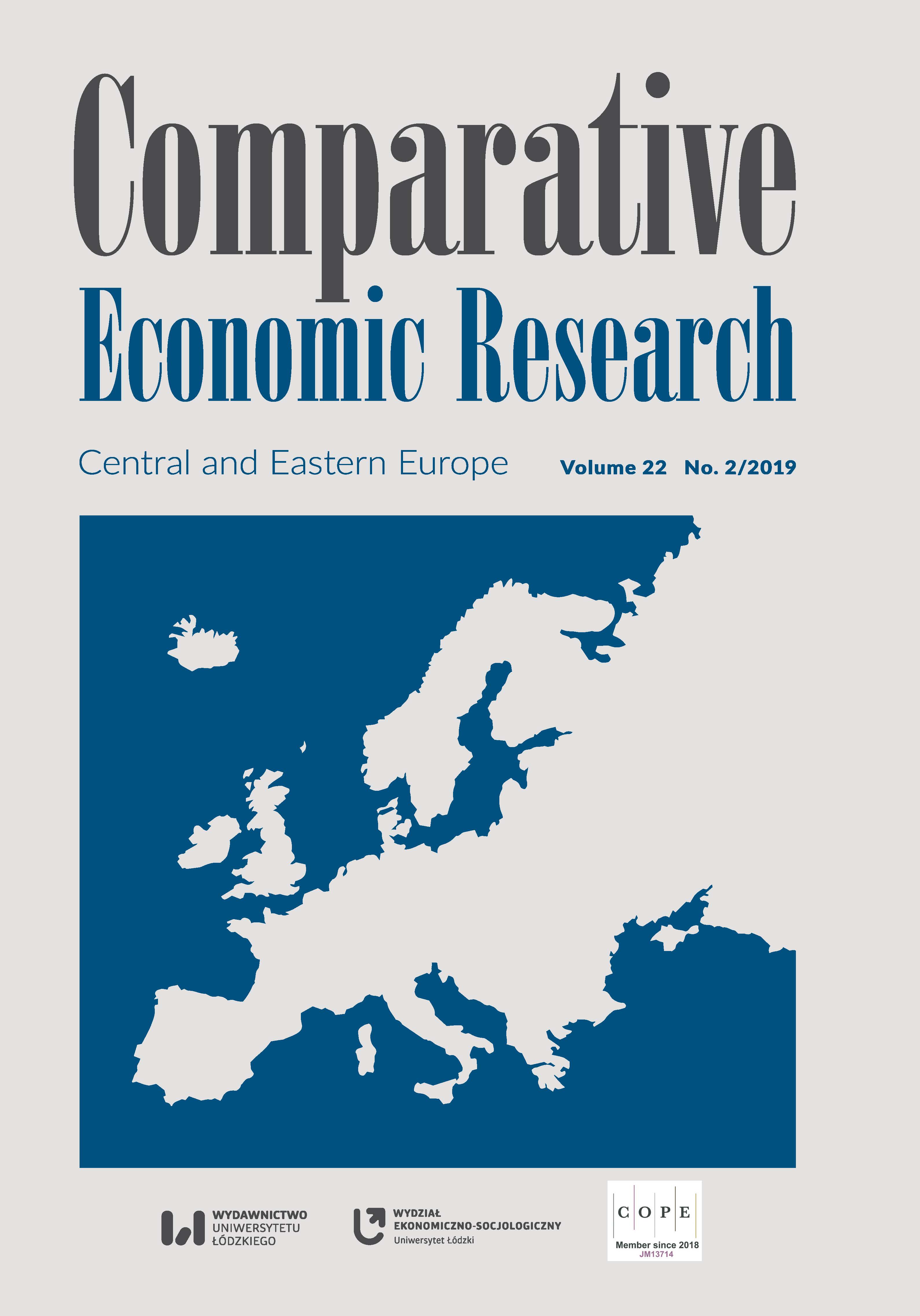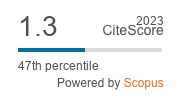Human Capital and Intellectual Capital in Modern International Business –Based on Studies of the Strategies of Transnational Corporations
DOI:
https://doi.org/10.2478/cer-2019-0017Keywords:
human capital, intellectual capital, transnational corporations, international businessAbstract
The main objective of the article is to discuss the direction of changes in the strategies of the most powerful transnational corporations as a result of adjustments to the new challenges created by the growing role of human capital in contemporary international business. Based on the concept of Grounded Theory Methodology, the author will indicate the main pillars of the strategy which can be considered effective for new challenges. The study has been divided into three parts. The first part discusses the most important theoretical issues concerning the place of human capital in the strategies of contemporary enterprises. In the second part, the author characterizes new trends in international transfers of human capital. In the next part, based on the research, the author discusses the impact of changes on the organizational and management system of enterprises – on the example of the most powerful transnational corporations. The studies have shown that all the most powerful transnational corporations notice the growing role of intellectual capital in contemporary business. The basis of corporations’ strategies is the emphasis put on the development of subsystems of intellectual capital, which refers to the activation of international transfers of human capital. In consequence, the strategies of the development of the most powerful transnational corporations are based on three pillars: networking, orchestration, and coopetition, and they are based on the three subsystems of intellectual capital: organizational capital, innovations, and the institutional environment.
Downloads
References
Andelin, M., Karhu, J., Junnila, S. (2015), Creating Shared Value in a Construction Project – a Case Study, “Procedia Economics&Finance”, Vol. 21, Elsevier Science B.V, Nordic Conference on Construction‑Economics‑and‑Organization, Tampere, Finland.
Google Scholar
Bonache, J., Brewster, C. (2001), Knowledge Transfer and the Management of Expatriation, “Thunderbird International Business Review”, Vol. 43 (1), Thunderbird School of Global Management, John Wiley & Sons, Inc., https://onlinelibrary.wiley.com/doi/epdf (accessed: 11.05.2018).
Google Scholar
Bontis, N. (2001), Assessing Knowledge Assets: A Review of the Models used to Measure Intellectual Capital, “International Journal of Management Reviews”, Vol. 3 (1), British Academy of Management, John Wiley & Sons, Inc..
Google Scholar
Bounfour, A. (2003), The IC‑dVAL Approach, “Journal of Intellectual Capital”, Vol. 4, MCB UP Ltd, Emerald Publishing.
Google Scholar
Brennan, N., Connell, B. (2000), Intellectual Capital: Current Issues And Policy Implications, “Journal of Intellectual Capital”, Vol. 1 (3), MCB UP Ltd, Emerald Publishing.
Google Scholar
Choong, K. (2008), Intellectual Capital: Definitions, Categorization and Reporting Models, “Journal of Intellectual Capital” Vol. 9 (4), Emerald Publishing, .
Google Scholar
Coorens, A. (2013), Increasing the Effectiveness of International Assignments: Aligning them with the Goals of the Organization and Assignees, http://essay.utwente.nl/64098.pdf (accessed: 13.07.2018).
Google Scholar
Coviello, N.E., Jones, M.V., McDougall‑Covin, P. (2014), Is International Entrepreneurship research a viable spin‑off from its parent disciplines? [in:] Fayolle, A., Riot, P. (ed.), Institutionalization of Entrepreneurship: Hopes and Pitfalls for Entrepreneurship Research, Routledge.
Google Scholar
Dhanaraj, C., Parkhe, A. (2006), Orchestrating Innovation Networks, “Academy of Management Review”, Vol. 31 (3).
Google Scholar
D”Costa, A.P., (2006), The International Mobility of Technical Talent. Trends and Development Implication, Research Paper, United Nations University, No. 143, https://www.wider.unu.edu/sites/default/files/rp2006–143.pdf (accessed: 19.07.2018).
Google Scholar
Dowling, P.J., Festing, M., Engle, A.D., (2013), International Human Resource Management, Cengage Learning EMEA, Andover.
Google Scholar
Global Mobility Trends Survey Report 2015, Brookfield Global Relocation Services. http://globalmobilitytrends.brookfieldgrs.com (accessed: 11.06.2018).
Google Scholar
Gorynia, M., Dzikowska, M. (2012), Teoretyczne aspekty konkurencyjności przedsiębiorstwa – w kierunku koncepcji eklektycznej? “Gospodarka Narodowa”, Vol. 4, Kolegium Analiz Ekonomicznych Szkoły Głównej Handlowej w Warszawie, Warszawa.
Google Scholar
Hagen, B., Denicolai, S., Zuchella, A. (2014), International entrepreneurship at the crossroads between innovation and internationalization, “Journal of International Entrepreneurship”, Vol. 12 (2), Springer Science & Business Media, New York.
Google Scholar
Håkansson, H., Snehota, I. (1995), Developing Relationship in Business Networks, Routledge, London.
Google Scholar
Harzing, A‑W. (2001), Of Bears, Bumble‑bees, and Spiders: The Role of Expatriates in Controlling Foreign Subsidiaries, “Journal of World Business”, Elsevier, Vol. 36 (4), https://harzing.com/download/spiders.pdf (accessed: 11.06.2018).
Google Scholar
Harzin A‑W., Christense C. (2004), Expatriate Failure: Time to Abandon the Concept? “Career Development International”, Vol. 9 (7), Emerald Group Publishing Limited.
Google Scholar
Harzin A‑W., Reiche, S.B. (2009), International Assignment, [in:] Harzing, A‑W. Pinnington A. (eds.) International Human Resource Management, Sage Publications, London.
Google Scholar
Hodgson, G.M., Knudsen, T. (2006), The Nature and Units of Social Selection, “Journal of Evolutionary Economics”, Vol. 16 (5).
Google Scholar
Klaila, D. (2000), Using Intellectual Assets as a Success Strategy, “Journal of Intellectual Capital”, Vol. 1 (1), Emerald Publishing.
Google Scholar
Kostova, K., Roth, T.K. (2003), Social Capital in Multinational Corporations and a micro‑macro Model of its Formation, “Academy of Management Review”, Vol. 28, Academy of Management Briarcliff Manor, New York, USA.
Google Scholar
Kourtit, K., Nijkamp, P., van Vught, F. (2014), Clusters of Supernova Stars in knowledge‑based Spaces: Value Creation through Cooperation, “International Journal of Global Environmental Issues”, Vol. 13 (2–4), Inderscience Publishers.
Google Scholar
Massey, D.S. Arango, J., Hugo, G., Kouaouci, A., Pellegrino, A., Taylor, J.E. (2005), World in Motion: Understanding International Migration at the End of the Millennium, Oxford University Press.
Google Scholar
McCutcheon, G. (2008), EVVICAE, a valuation model for intellectual asset‑rich businesses, “Measuring Business Excellence”, Vol. 12 (2), Emerald Publishing.
Google Scholar
McDougall‑Covin, P., Jones, M.V., Serapio, M.G. (2014), High‑Potential Concepts, Phenomena, and Theories for the Advancement of Entrepreneurship Research, “Entrepreneurship Theory and Practice”, Vol. 38 (1), Wiley.
Google Scholar
Myloni, B., Harzing, A‑W., Mirza, H. (2004), Host Country Specific Factors and the Transfer of Human Resources Management Practices in Multinational Companies, “International Journal of Manpower”, Vol. 25 (6), Emerald Publishing.
Google Scholar
Lyles, M.A., Salk, J.E. (1996), Knowledge Acquisition from Foreign Parent in International Joint‑ventures: An Empirical Examination in the Hungarian Context, “Journal of International Business Studies”, Vol. 27 (5), Palgrave Macmillan.
Google Scholar
Petty, R., Guthrie, J. (2000), Intellectual Capital Literature Review. Measurement, Reporting and Management, “Journal of Intellectual Capital”, Vol. 1 (2), Emerald Publishing.
Google Scholar
Pedersen, T., Venzin, M., Devinney, T.M., Tihanyi, L. (2014), Orchestration of the Global Network Organization, “Advances in International Management”, Vol. 27, Emerald Insight.
Google Scholar
Pike, S., Rylander, A., Roos, G. (2001), Intellectual Capital Management and Disclosure, Paper presented at the 4th World Congress on Intellectual Capital, McMaster University, Hamilton, Ontario, Canada.
Google Scholar
Reagans, R., Zuckerman, E.W. (2001), Networks, Diversity and Productivity: The Social Capital of Corporate R&D Teams, “Organization Science”, Vol. 12 (4), Informs PubsOnLine.
Google Scholar
Reiche, S., Kraimer, M., Harzing, A.W. (2008), Inpatriates as Agents of Cross‑Unit Knowledge Flows in Multinational Corporations, http://www.harzing.com/download/inpatsbc.pdf (accessed 14.07.2018).
Google Scholar
Rosińska‑Bukowska, M. (2012), Rozwój globalnych sieci biznesowych jako strategia konkurencyjna korporacji transnarodowych, Publishing House of University of Lodz.
Google Scholar
Rosińska‑Bukowska, M. (2017), Strategic changes in transnational corporation as an adjustment to the challenges of the 21st Century, “Entrepreneurial Business and Economics Review”, Vol. 5 (2), Publishing House of Cracow University of Economics.
Google Scholar
Ross, G., Ross, J. (1997), Measuring your Company’s Intellectual Performance, “Long Range Planning” June, https://www.researchgate.net/publication/222479978 (accessed: 12.05.2018).
Google Scholar
Sarvary, M. (1999), Knowledge Management and Competition in the Consulting Industry, “California Management Review”, Vol. 41 (2), SAGE Journals, BerkeleyHaas.
Google Scholar
Saxenian, A.L. (2006), International Mobility of Engineers and the Rise of Entrepreneurship in the Periphery, WIDER Research Paper 2006/142, UNU‑WIDER, Helsinki.
Google Scholar
Skyrme, D.J. (1999), Knowledge Networking. Creating the Collaborative Enterprise, Butterworth Heinemann, Oxford.
Google Scholar
Stahle, P., Stahle, S, Aho, S. (2011), Value Added Intellectual Coefficient (VAIC): A Critical Analysis, “Journal of Intellectual Capital”, Vol. 12 (4), Emerald Publishing.
Google Scholar
Stewart, T.A. (2001), The Wealth of Knowledge. Intellectual Capital and the Twenty‑First Century Organization, Nicholas Brealey Publishing, London.
Google Scholar
Stępka, P., Subda, K. (2009), Wykorzystanie analizy sieci społecznych (SNA) do budowy organizacji opartej na wiedzy, “E‑mentor”, No. 1 (28), www.e‑mentor.edu.pl/artykul/index/numer/28/id/618 (accessed: 23.07.2018).
Google Scholar
Sveiby, K.E. (2015), Methods for Measuring Intellectual Capital, www.sveiby.com (accessed: 23.07.2018).
Google Scholar
Thomson, G., Frances, J., Levacic, R., Mitchell, J. (1991), Markets, Hierarchies and Networks: The Co‑ordination of Social Life, Sage Publications, London.
Google Scholar
Vahlne, J.E., Ivarsson, I. (2014), The globalization of Swedish MNEs: Empirical evidence and theoretical explanations, “Journal of International Business Studies”, Vol. 45 (3), Palgrave Journals, University of Gothenburg.
Google Scholar
Viedma, J.M. (2001), ICBS Intellectual Capital Benchmarking System, “Journal of Intellectual Capital”, No. 2, Emerald Publishing.
Google Scholar
Wach, K. (2015), Incremental versus Rapid Internationalisation of Firms: Results of Exploratory Investigation from Poland, “Entrepreneurial Business and Economics Review”, Vol. 3 (4), Publishing House of Cracow University of Economics.
Google Scholar
Wall, A., Kirk, R., Martin, G. (2004), Intellectual Capital. Measuring the Immeasurable?, CIMA Publishing Elsevier, Oxford.
Google Scholar
Zucchella, A., Scabini, P. (2007), International Entrepreneurship – Theoretical Foundations and Practice, Palgrave Macmillan, New York.
Google Scholar
Downloads
Published
How to Cite
Issue
Section
License

This work is licensed under a Creative Commons Attribution-NonCommercial-NoDerivatives 4.0 International License.











